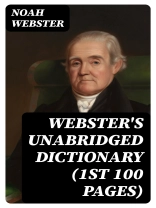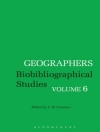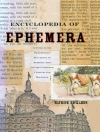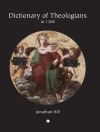In the first 100 pages of Webster’s Unabridged Dictionary, Noah Webster embarks on an ambitious mission to standardize American English, meticulously defining words while addressing their etymological origins, uses, and pronunciation. Written in a clearly structured and accessible literary style, this dictionary not only serves as a reference work but also as a testament to the young nation’s desire for a distinct linguistic identity. It situates itself within the context of early American nationalism, reflecting the cultural and political aspirations of a post-revolutionary society eager to define itself against European influence. Noah Webster, often hailed as the ‘Father of American English, ‘ was a lexicographer, grammarian, and educator whose profound belief in the power of language inspired this unparalleled compilation. His experiences as a teacher, coupled with his observations of the linguistic diversity among the American populace, motivated him to create a dictionary that would promote literacy and foster a sense of cohesion across the rapidly growing nation. His dedication to the evolution of American language mirrors the broader journey of the American identity itself. This seminal work is essential for scholars, educators, and anyone interested in the evolution of the English language. Webster’s Unabridged Dictionary is not merely a catalog of words; it is a rich historical document that encapsulates the formative ideals of American society. Readers will appreciate how each entry provides insight into the language used in everyday life and the profound ideas that shaped a nation.
Tentang Penulis
Noah Webster (1758–1843) was an influential American lexicographer, textbook pioneer, English spelling reformer, political writer, and editor. Born in West Hartford, Connecticut, Webster’s name has become synonymous with ‘dictionary’ in the United States. His quintessential work, ‘Webster’s Unabridged Dictionary, ‘ is a staple in American English language resources. Well-educated at Yale College during the American Revolution, his encounters with the different dialects of English spoken by soldiers instilled in him a deep interest in language and education. After practicing law for a short period, Webster chose to focus on education, producing his first dictionary, ‘A Compendious Dictionary of the English Language, ‘ in 1806 and subsequently, his magnum opus, ‘An American Dictionary of the English Language’ in 1828, which laid the foundation for the version referenced here. Webster introduced American English spellings and distinguishing American words, carving an identity for the burgeoning nation’s language. His works extend beyond dictionaries, spanning numerous textbooks, including the renowned ‘Blue-Backed Speller, ‘ which helped standardize American English. Webster’s prolific career in lexicography not only captures his dedication to education and reform but also his desire to foster a unique cultural identity for America through language. Webster’s scholarly commitment and his works continue to influence American English and education.












